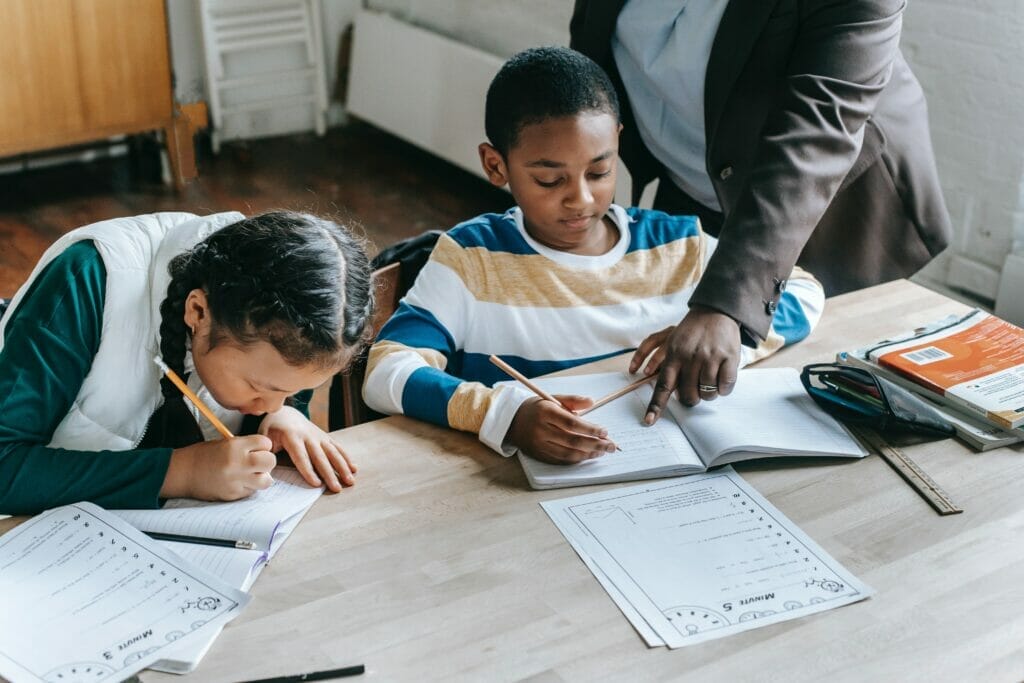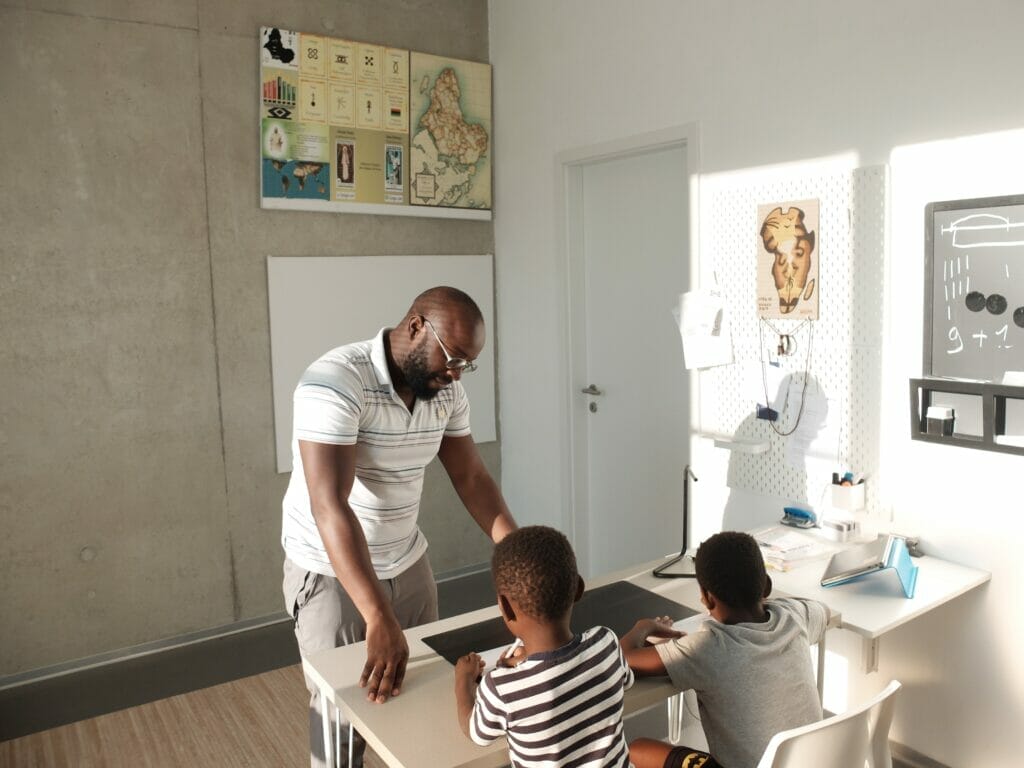How Useful Are Tutors?
A variety of studies have concluded professional tutoring programs that incorporate researched-based elements produce improved results.
Parents often choose to hire a tutor for their kids because they feel unable to help their kids with schoolwork. However, there are many benefits of tutoring. One of the biggest advantages is that it provides individualized attention that students don’t receive in a crowded classroom.
Children who struggle to keep up in class or who aren’t challenged enough tend to fall behind. Private tutoring sessions allow them to work at their own pace, giving them the opportunity to catch up without feeling overwhelmed.

Does Traditional Private Tutoring Help Students?
Studies conducted across the United States have found that traditional one-on-one tutoring does not show significant results. In fact, it does not even work well enough to justify the cost.
A study conducted by the University of California Berkeley showed that there is no difference between the performance of students who received traditional tutoring compared to those who received school learning.
Another similar study was conducted by the Harvard Graduate School of Education, where researchers found that students who had access to traditional tutoring did not perform better than students who had access to programs at school.
In addition to this, some research suggests that traditional tutoring sessions do more harm than good. A study published in the Journal of Educational Psychology found that students who participated in traditional tutoring actually performed worse than students who did not participate in such classes. This finding led many experts to believe that traditional tutoring options could potentially do more harm than good.
However, there are still people who claim that traditional tutoring works. Some argue that tutors are able to make a real impact on students because they know how to teach effectively. Others say that tutors have a special ability to connect with students and motivate them to learn.

Which Tutoring Technique Is Effective?
Research-Based Tutoring
A variety of studies have concluded professional tutoring programs that incorporate researched-based elements produce improved results. In fact, researchers found that the use of research-based materials in the classroom produced better learning outcomes than traditional methods.
This type of tutoring program incorporates several different aspects into one package. For example, there are pre-assessment tests to determine what concepts the student needs help understanding. Then, once those concepts are identified, teachers use a variety of strategies to teach the material. These include quizzes, worksheets, videos, online resources, etc.
The key here is that each strategy used is backed up by solid evidence. When you’re using research-based techniques, you know exactly how well they work. You don’t just throw something together and hope for the best. Instead, you test out your ideas and see whether they actually work.
Giving Enough Time to Process Information
A study conducted by researchers from the University of California, Irvine found that tutors are better off spending less time lecturing and more time processing and assimilating information. This allows students to absorb more information and gain a deeper understanding of the material being taught.
The research team administered tests to over 2,500 students and analyzed their scores. They discovered that students performed better when allowed to spend more time processing and assimilating information. Students who spent less time processing received lower test scores.
Positivity In Student-Teacher Relationships
A recent study conducted by researchers at the University of California, Berkeley found that private tutoring services can work well if there is a strong connection between the tutor and the student. In fact, it showed that students who had a better relationship with their tutor did much better academically compared to those without such a close bond.
The study focused on how private tutoring could benefit middle school students. Researchers wanted to know what factors were most influential in improving academic performance. They analyzed data from over 3,200 students in grades 4–8 who participated in the National Study of Learning Disabilities.
Researchers found that while some tutors are more effective than others, having a positive relationship with the tutor is one of the strongest predictors of success. More specifically, they found that students who got along with their tutor did better academically compared to students who didn’t like their tutor.
This was true even among students whose parents thought they needed extra help. While many tutors might assume that students don’t want to spend time with them because they feel uncomfortable, the opposite seems to be true.
If you think about it, why wouldn’t you want to improve yourself? When you do something difficult, you usually enjoy doing it. So, the more comfortable you are with your tutor, the more likely you are to succeed.
Tutoring And School Curriculum Coordination
Tutors often focus on teaching subjects outside of those covered in schools. But research suggests that tutors who coordinate their lessons with the curriculum taught at schools are better able to improve student performance.
A study conducted by researchers at the University of California, Berkeley, found that students who received instruction from tutors who coordinated their lessons with the curriculum performed better than those who had tutors who didn’t match up their lessons with the school curriculum.
The study looked at how well tutored students did compare to peers who took classes without tutors. Students who had tutors that matched their curricula outperformed both the control group and the tutored groups that lacked coordination.
What Advantages Does Tutoring Offer?
Peer tutoring programs can help your children develop study and learning skills they’ll use throughout their lives. Here are some of the advantages of tutoring services:
Individual And Unique Learning Experience
Your child will receive an individual learning experience he or she cannot always find in a classroom setting. A tutor gets to know your child’s personal interests and strengths and can tailor the lessons and activities just to him or her.
One-On-One Attention
A tutor gets to know your children’s individual needs and styles and can adjust teaching methods accordingly. This helps ensure your child receives the best possible instruction.
Personalized Education
Tutors get to know your children personally, and can better understand how to teach them effectively. This one-on-one approach allows them to provide a personalized education that no textbook can match.

Considerations To Make Before You Choose A Tutor For Your Child
Define Your Objective
The most important thing about learning anything is identifying what it is you want to achieve. If you don’t know why you’re doing something, how do you know whether you’re getting better at it?
If you’re choosing a tutor, chances are you’ve got some sort of a performance goal in mind. You might want to pass a test, complete a project, earn a qualification, or simply gain knowledge. Whatever your aim, make sure you understand why you’re choosing a specific individual that can help you with your learning goals. This will help you keep focused and avoid wasting your time and money.
Pay Close Attention To The Teacher’s Behavior
Private tutors often think that good tutoring consists solely of the teacher talking about what he or she knows. But it turns out that there are many subtleties to how a tutor interacts with his or her student. A recent study showed that even when tutors knew very little about the subject being taught, they could still improve learning outcomes for students.
So the next time you’re tutoring someone, look closely at the way the tutor behaves. Does the tutor seem interested in the student’s responses? Is the tutor asking questions to help the student understand the material? Do the tutor’s questions make sense? Are the tutor’s comments helpful?
Remember The Free Options
Before parents jump straight to paying for tutoring, there are plenty of free alternatives. In addition to school programs, there are also numerous opportunities to find volunteer or peer tutoring that provides tutoring in college. Tutoring clubs are common in high schools, middle schools, and elementary schools across the United States. Community organizations often sponsor tutoring programs in local libraries and community centers. Also, some tutoring companies specialize in providing tutoring to low-income families. As always, parents should research each option thoroughly to ensure it meets their child’s needs.
Keep Your Expectations In Check
Tutors often feel like they’re working miracles. But, there’s no guarantee that tutoring is going to work out well for you. In fact, studies show that while tutoring is generally more beneficial than not, tutoring is also generally less effective than we think. The bottom line here is that there’s no way to tell ahead of time how successful tutoring will be. You’ll never know unless you try, though.
A Wife, a mum and a Tutor! I am the Lead Editor at TheTutor.Link & also the Head Tutor there. I love teaching seeing young minds flourish. I also love blogging and sharing my experience on the world wide web.